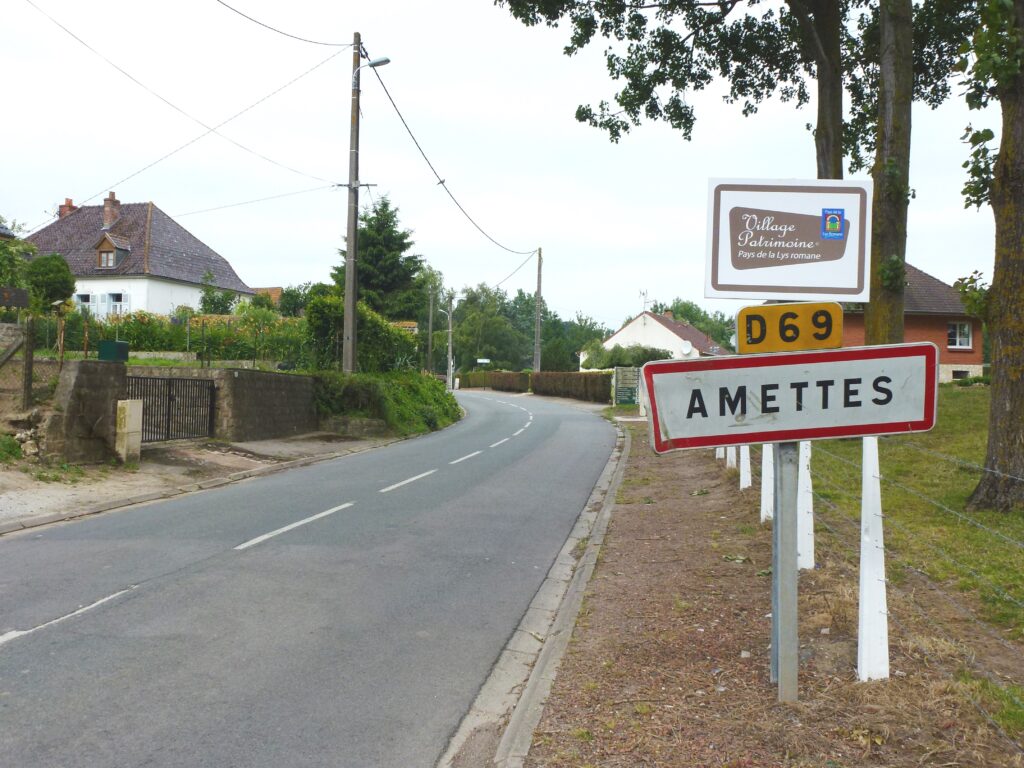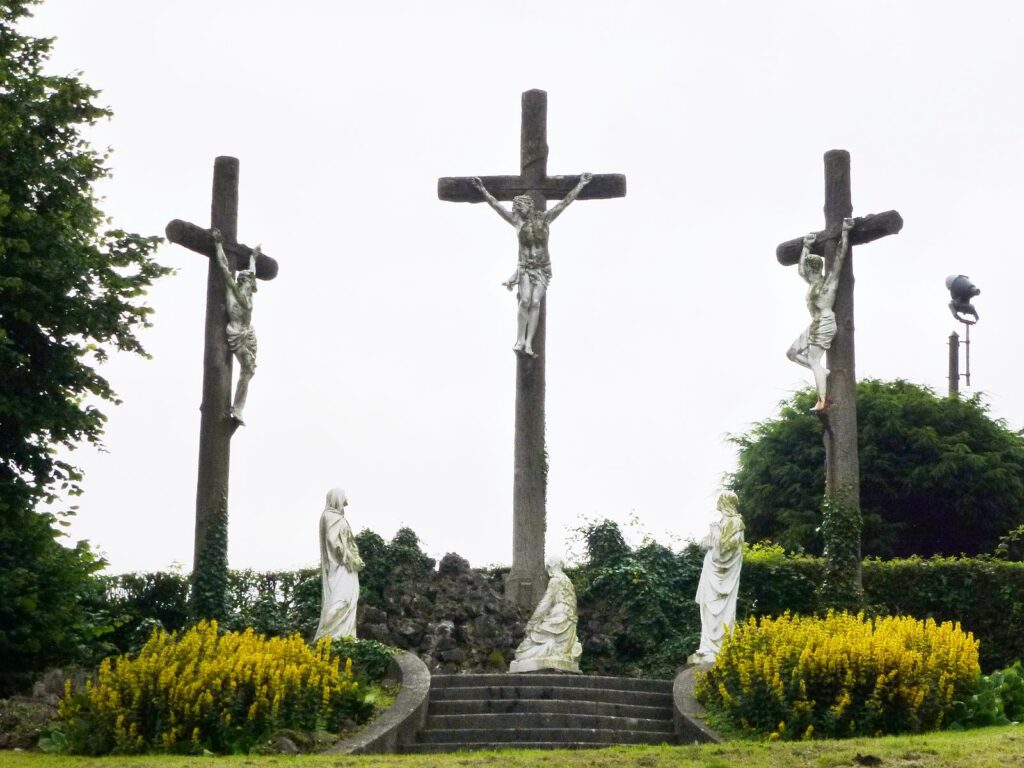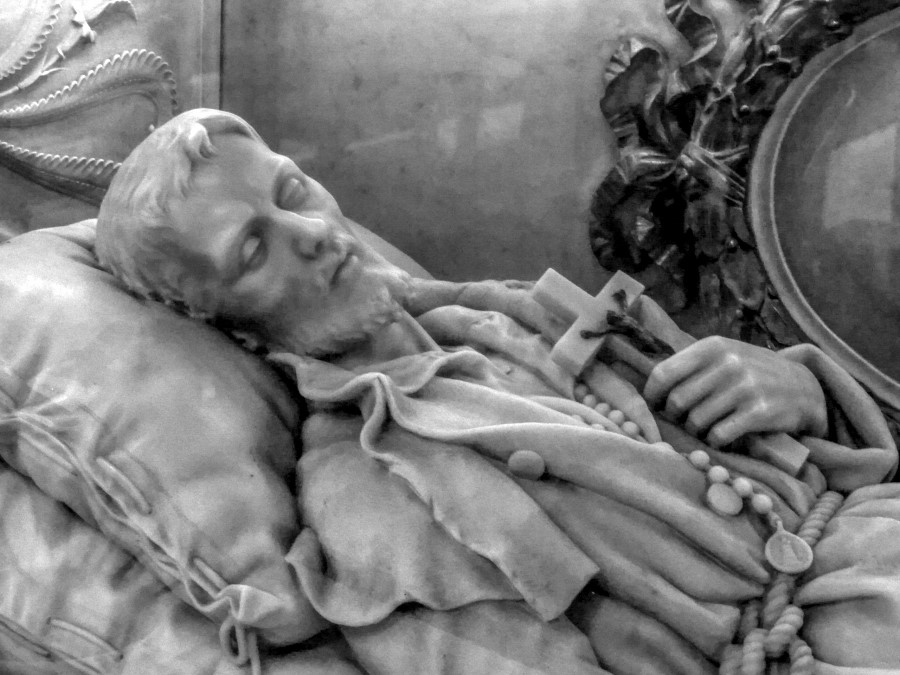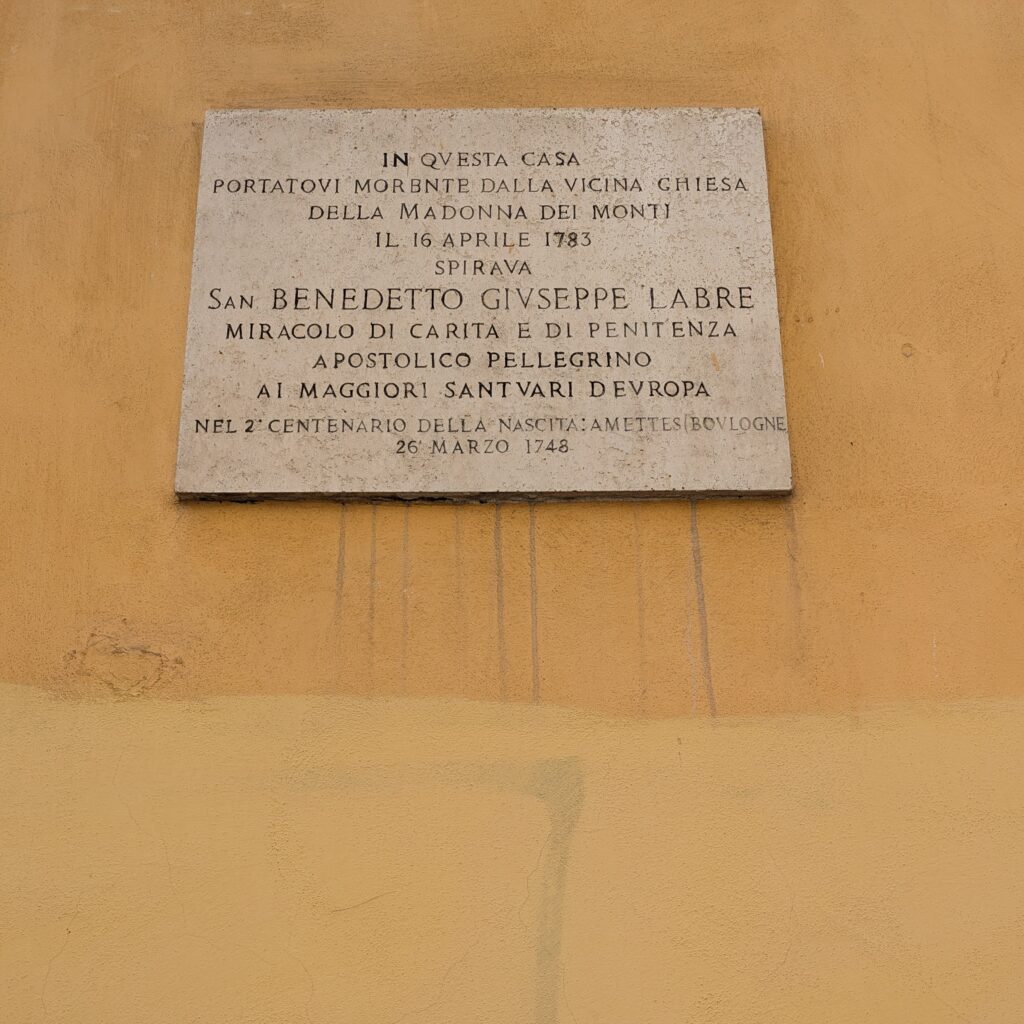June 16 // Rags and Riches
I wish I could say that yesterday ended with my getting broadsided by a giant truck, but in truth we rolled into the Ferme free and easy by 3pm, nary a hiccup between us.

The village of Amettes, like the majority of its surroundings to this point, fails to strike many adjectives in the heart of this writer. Appearing to be much younger than I’d anticipated, it might give off the vibe of a typical American exurb, but for the occasional vineyard where a hedgerow might normally be and for, in the instance of actual hedgerows, the razor-like precision at which those fuckers are trimmed.
It demands the slightest of inclines to reach our destination, a corner property on the Rue de l’Église which appropriately features a church-like portal embedded into the wall. That gives way to a disconcertingly wobbly roof over a pair of barn doors studded with gîte-branded signage to confirm: we’ve reached our destination.
The jagged old courtyard looks as if it were spat out from an AI prompt of “rural French farm,” its red brick and white stone buildings accented with powder blue shutters, overgrown pots of lavender, and the sonic gurgle of chickens hanging in the air.
Delivering on the promise of a chalk signwhich reads pelerins ici, a no-necked, pasty sixty-something lady in an oversized sunhat punctures the stillness, emerging with her arms full of wet socks and the conspicuous grin of a madwoman. “Welllllll, look at you two! Hiya there, and you must be the other pilgrims, am I right?” Her laugh is very loud and unguarded in a way I don’t think I’ve ever been once in my entire life.
Gail is a semi-retired teacher from New South Wales, one half of a couple that is in the midst of a ten-summer plan to walk the whole of the Francigena, one fat, sweltering chunk at a time.
Upon hearing of our plan, she gasps “my goodness!” at a volume that is presumably sincere, and calls into the house. “You hear that, Rod, darling?”
“I’m ass-naked, Gail, what the hell’s the matter?”
“(He’s just wrapping up a shower; he hates it when I do this!) The boys are biking from London! Isn’t that nice?”
“Goddamnit, what boys? Give us a bloody minute, willya?”
Once dry and clothed, Rod appears as big-boned and red-faced as you might expect, with huge mitts that disappear your own in a proper man’s-man’s handshake. Long since exhausted by the wellspring of energy from his wife, he gives off the energy of a rigid postwar traditionalist, yet name-drops surprisingly counter-cultural bands like Midnight Oil, Cold Chisel, and The Radiators* while reflecting fondly on his visit to Haight-Ashbury back in the good old days.1
Our hosts arrive: a group of seemingly ten people spill out from one car, plus a bright-eyed spaniel named Lucy who immediately prostrates herself on her back at my feet.
The matron, Collette, signs us up, stamps our pilgrim credentials, and sells us a sack of potatoes, a half-dozen eggs, and a bottle of store-bought Bordeaux, all for about $35/head. “Add a couple beers to our tab, won’t you, love?” Rod says, leaning in. “Gail, how do you say beer in French?”
After a nap, a shower, and an inspired dinner of potato-pepper hash and scrambled egg, Mark and I go for a stroll, beer in one hand, diet joint in the other.
The town of Amettes is tiny enough to where my inexpertly rolled spike of green outlasts the full journey, so we take pause to finish things up with a puff in the old cemetery.

Mossy and autumnal despite it being mid-June, the cemetery sports a sign pointing toward the birthplace of a Saint Benoît-Joseph Labre, a man who is clearly important enough for a sign, let alone sainthood, but it’s down a hill, our quads are aching, and this fake weed is actually working. Fuck it, we figure, and we head back to camp.

I cringe in consideration of how many important bits of history like this we’ve already missed. Labre, whose name sounds like it could be the French word for labia2, was born in 1748 to a wealthy family that included an uncle who was parish priest. After a plague wiped out much of the town, his uncle included, the teenager tried in vain to submit himself to several abbeys, including La Grande Trappe3, each of which rejected him for being too young, too sickly, and having too little to offer his would-be colleagues-in-Christ.
Rather than continuing knock on a locked door, Labre decided that maybe he just wasn’t cut out for the life of a monk, and began traveling thousands of miles on foot to the major holy sites, from today’s Francigena onward along the Cammino to Santiago de Compostela. Ultimately settling in Rome, he would sleep among the ruins of the Coliseum before dying at 35, sick and penniless, in the home of a butcher.
What a cuck, am I right! More like Patron Saint of Get A Job, am I right! It’s like, to quote the great Austin Powers, le-hoo…za-herrrr, am I right!
Canonized nearly a century later by Pope Leo XIII, Labre became known as the patron saint of the homeless, having spent the last fifteen years of his life on the dole and becoming beloved by Romans for his seemingly endless generosity among those less fortunate than he no matter how much his stomach growled.

There are very few things, if any, that I have in common with San Benedetto Giuseppe Labre: for one, I am alive while he is dead. Moreover, I have yet to inspire Paul Verlaine (also dead) to write a poem in my honor. And while I just so happen to be writing this particular entry just around the corner from the Roman church4 where Labre is interred (itself a few steps from the home-turned-museum-and-chapel where he breathed his last), our paths to this point have varied considerably.
Still, given we’ve now run into one another twice on this trip, I can’t help but wonder if there’s some kind of message one might take away from his mythology and what it says about being a pilgrim. Maybe it means I should go sleep in the Coliseum? Or figure out some way to die in the home of a butcher? Or maybe I should consider channeling my own…damn, I don’t know. It’ll come to me. It really makes you think, though.
//
By morning, after a lovely breakfast in Collette’s lace-and-porcelain parlor, our Australian friends set out at least an hour before Mark and I are packed ready to leave.
A few miles down the road, we spot the couple clinging miserably to a patch of shade alongside a bus stop. Upon catching sight of us, however, Gail snaps to, clapping and squealing and jumping up and down, and even Rod can’t help but pump his fist in encouragement; I just can’t quite wrap my head around those two.
What a strange and lovely little community this is.
- These are indirect quotes and citations, of course. It’s not like I remember the actual names of these people, but you get the vibe. ↩︎
- It actually translates to the lippy, toothy fish we call a wrasse. ↩︎
- Home of the very Trappists whose 17th century goal of self-sufficiency resulting in Trappist beers like Chimay and Westvalle! ↩︎
- The Church of Santa Maria ai Monti, in the heart of one of Rome’s most gentrified neighborhoods formerly known as the Suburra ↩︎

